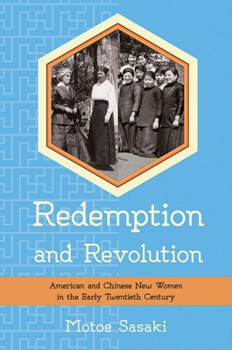Redemption and Revolution: American and Chinese New Women in the Early Twentieth Century
(Part of the The United States in the World Series and The United States in the World Series)
In the early twentieth century, a good number of college-educated Protestant American women went abroad by taking up missionary careers in teaching, nursing, and medicine. Most often, their destination was China, which became a major mission field for the U.S. Protestant missionary movement as the United States emerged to become an imperial power. These missionary women formed a cohort of new women who sought to be liberated from traditional gender roles. As educators and benevolent emancipators, they attempted to transform Chinese women into self-sufficient middle-class professional women just like themselves.
Motoe Sasaki shows in Redemption and Revolution how these aspirations ran parallel to and were in conflict with those of the Chinese xin nüxing (New Women) they encountered.The subjectivity of the New Woman was an element of global modernity expressing gendered visions of progress. At the same time it was closely intertwined with the view of historical progress in the nation. Though American and Chinese New Women emphasized individual autonomy in that each sought to act as historical agents for modern progress, their notions of subjectivity were in different ways linked to the ideologies of historical progress of their nations. Sasaki's transnational history of these New Women explores the intersections of gender, modernity, and national identity within the politics of world history, where the nation-state increased its presence as a universal unit in an ever-interconnecting global context.
Related Subjects
History




